The health benefits of garlic ( Allium sativum) for chicken and humans are mind-blowing. In fact, scientists have not been able to research all the health benefits locked up in garlic.
Needless to say, garlic has been extensively proven to contain antioxidant and antimicrobial effects and being an important culinary ingredient, garlic and its preparations are widely used for improving the flavor profile of continental dishes. Garlic has been proven to be one of the natural growth boosters for chickens
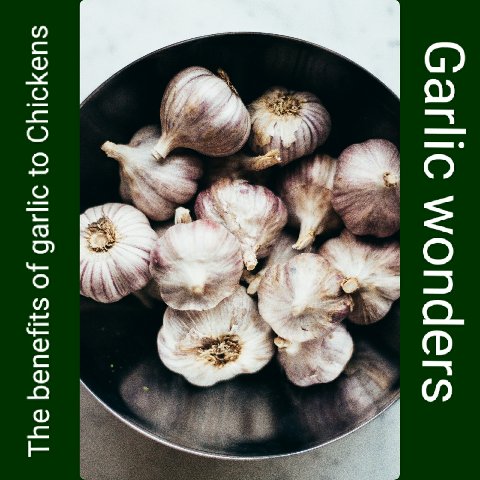
Also read: 6 smart tips to increase the bodyweight of your broiler chicken
Before we dive deep, what exactly is garlic?
A member of the onion ('Allium') family, garlic is classed as a vegetable although many people think of it as a herb.
It consists of several small 'cloves' bunched together into a 'bulb' or 'head' and covered with a thin, paper-like coating.
Originating in Asia, it's been around for centuries and has been used medicinally for human beings for almost as long.
Here in Nigeria, garlic is mostly cultivated in the northern part of the country under irrigation during the dry season when the temperature is low.
Garlic is a plant in the onion family that’s grown for its distinctive taste and health benefits. It contains sulfur compounds, which are believed to bring some health benefits.
Wait! If I may ask, does garlic do what people claim it can do? Let look at some quotes from popular sources
"There are many miracles in the world to be celebrated and, for me, garlic is among the most deserving."
Professor Leo Buscaglia
"Each clove of garlic has a sacred power..."
Rev. Hilderic Friend, "Flowers and Flower Lore", 1891
"The soul of pesto maybe basil, but its heart is garlic"
Pittsburgh Press
Garlic should be eaten in moderation, less the blood of a man overheats. In truth, if garlic is forbidden, a man's health and proper strength vanish away; but if it is then mixed with food in due proportion, it will bring back his strength"
St. Hildegarde, 12th century
These quotes show that the benefits and potency of garlic cannot be over-stressed.
However, in this post, we are going to look at the following below...
What this article covers
- Can chickens eat garlic?
- What are the health benefits of using garlic for chicken
- Heath benefits of garlic
- Does garlic kill worms in chicken?
- How much garlic should I give my chicken?
- How best to feed/use garlic for chicken
- how to prepare garlic for poultry
- benefits of garlic water, oil and powder
- Is garlic good for broilers?
This post is going to be a long one, so, get yourself a drink and seat tightly as we sail off...
.Can chicken eat garlic?
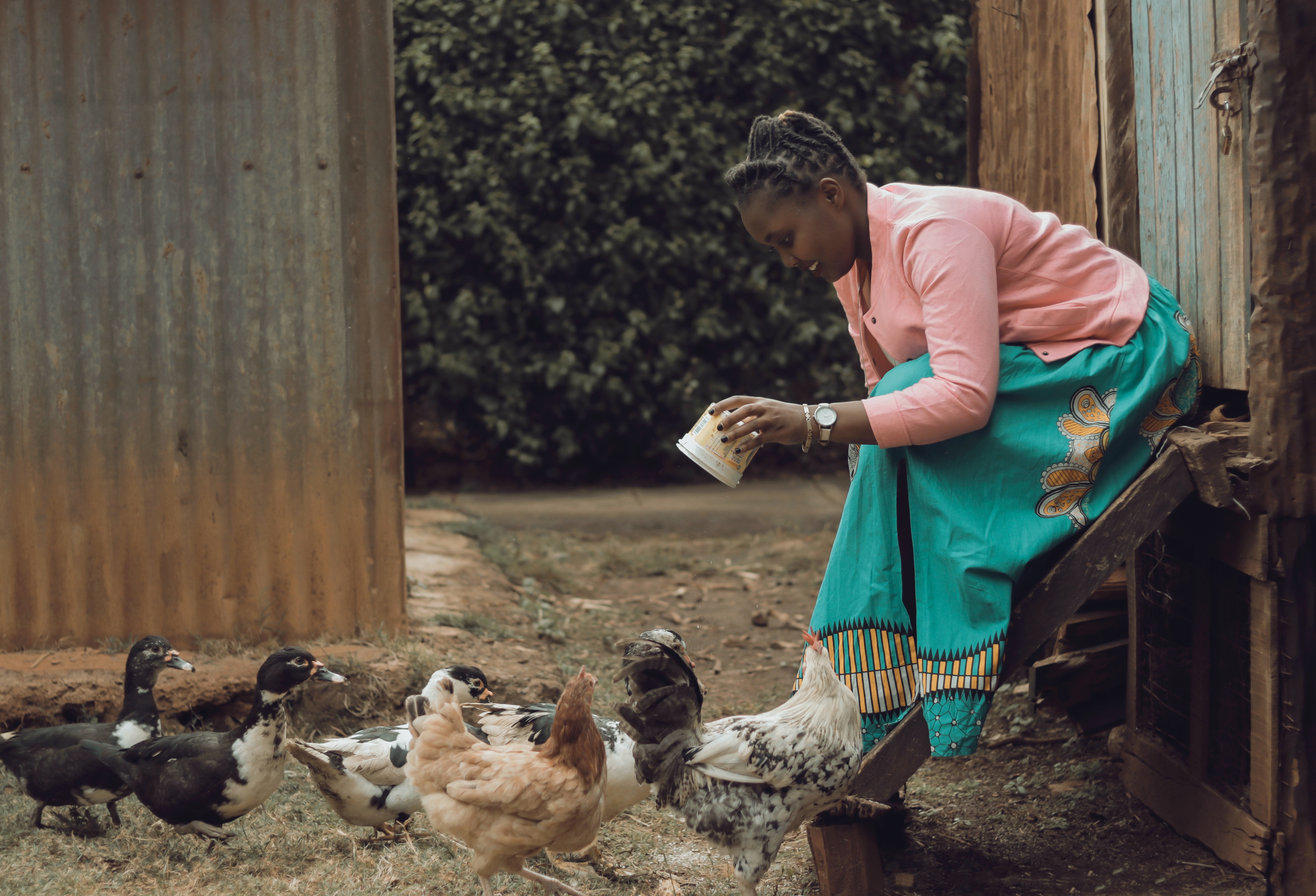
The chicken will eat anything palatable and pickable, and this does not exclude garlic. At least I can still remember my mum normally feed garlic and other kitchen wastes to our backyard chickens, which they savor with delight.
One of the reasons why I love chickens is that they instinctively know what they want and they will feed and pick anything that will nourish their body.
And garlic is one spice and herb that have both nutritional and medicinal effects and it will be an honor to feed them to your chickens, they will definitely love it.
Although you may have come across some articles claiming that since garlic belongs to the onion family, garlic will be poisonous to chickens.
This claim is not entirely true. This is because the make-up of garlic is totally different and the element that causes problems in onions - thiosulphate - is present only in tiny quantities in garlic.
Moreover, there extensive peer-review on the potency of using garlic for chickens, and the outcome of the actual researches are overwhelming.
But there is always an exception…
With every other thing, as the saying goes, too much of everything is bad, and garlic is not an exception to this rule. Thus, any extra garlic given to your chicken should be based on evidence of research.
Don’t be overwhelmed with the benefits of garlic to the extent it becomes a threat to your chickens. As always, moderation should be your watchword. Too much garlic will interfere with the balance of bacteria in the digestive system.
the experiment in small quantities, add it gradually to their feed or water. Don't try to put an entire garlic bulb in your chickens' water if they've never had it before - they simply won't touch it. Also, try to chop the garlic into pieces to activate the sulfur active compound known as allicin
Also read: How to hatch chicks naturally at your backyard farm
Can baby chick eat garlic?
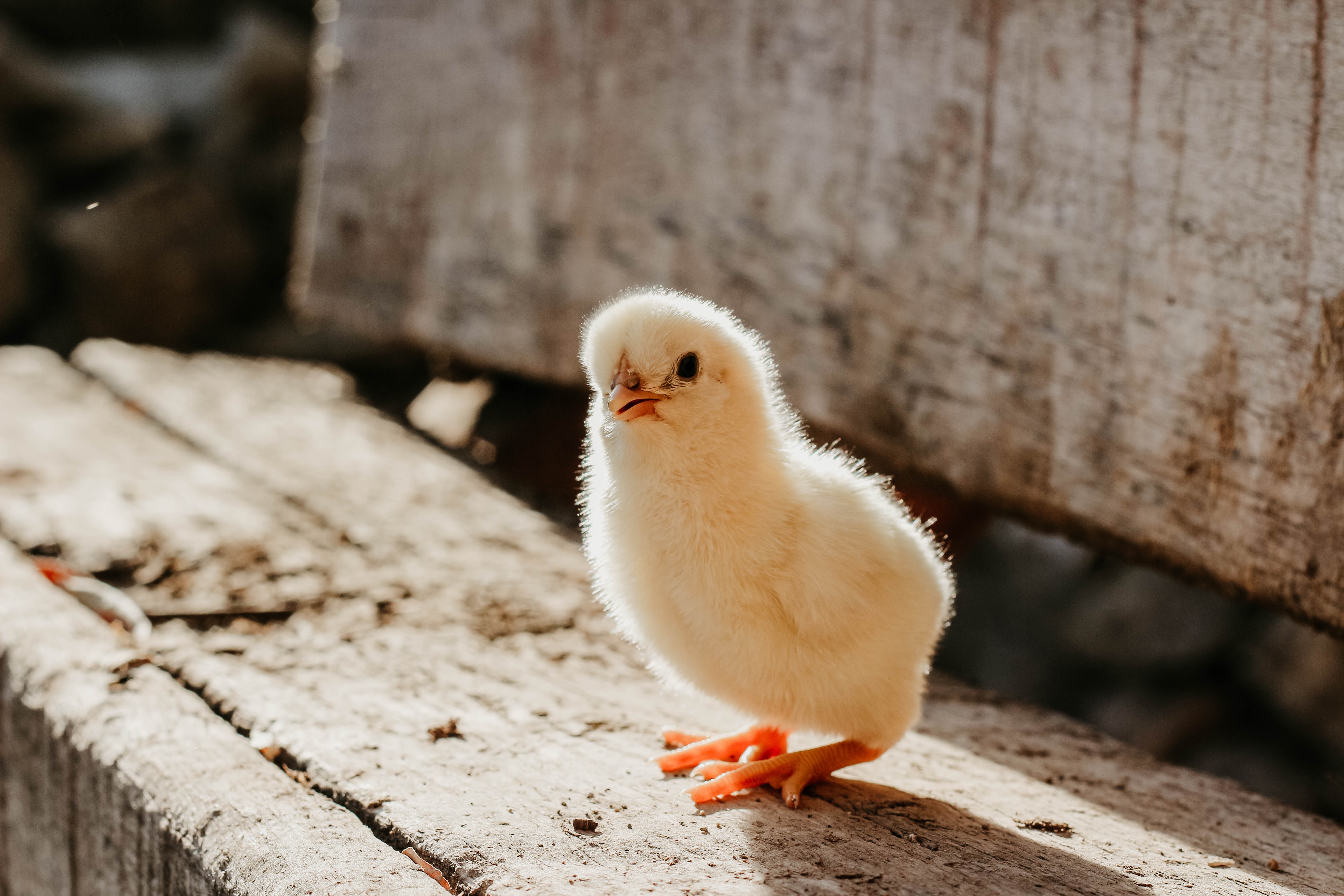
Here, moderation comes into play again.
As garlic grows in popularity as a potential alternative to synthetic antibiotics, there is an obvious need to include garlic (right proportion) into the diet of your baby chick during brooding.
It will help build their immune system and helps guard against internal and external parasites such as worms mites respectively. And chicks who have tasted garlic water soon after hatch are more likely to accept it as adults.
(Petal et al, 2017) concluded that supplementing the broiler chick diet with 0.5% of garlic bulb powder improved the growth performance and feed utilization efficiency.
Also, In adding garlic to water for baby chick, Gail Damerow suggests giving a small amount, no more than one clove (not a bulb!) to one liter (1.5 UK pints; 4 US cups; one quart) of water. Crush the garlic into the water no more than twice a week.
Don't allow the garlic water to stand for longer than 48 hours (2 days). At intervals, offer ordinary water as usual. And observe the chicks - if they're not drinking, they will easily dehydrate
.
In that case, revert to water without the garlic. Try again after some days. Reduce the quantity of garlic at first, gradually increasing it over time.
What are the true health benefits of garlic?
If you surf the net you will see many benefits of garlic including those that are not true, starting from enhancing sex performance to curing cancer. The same goes for chicken.
What then are the exact health benefits of garlic to chicken?
Here are some evidence-based benefits of using garlic for chicken.
1. A boost to the immune system
Generally, chickens are hard and have a natural way to ward off diseases, but they are stressed, their immune system can be compromised therefore giving way to some opportunistic diseases.
To support your chickens during this time, you have to boost the immune system of your chickens by adding garlic to their food or water.
The efficacy of garlic’s antimicrobial effects cannot be over-stressed.
A stressed chicken may not eat or drink little, could have a watery or unusual poop, form ruffling feathers, having a droopy stance, staying alone, etc. Supporting and boosting the immune system with garlic will help the chicken to fortify itself and recover fully.
2.Protects against bacteria.
- Using garlic for chickens has been proven to be active against bacteria, plus Salmonellosis, Colibacillosis, and Cholera
3.As a Replacement for Synthetic Antibiotics
Due to garlic‘s antimicrobial effects, garlic has found favor in the hands of several researchers as a potential replacement for antibiotics use in poultry feed.
4.Re-balances the system.
Garlic has the ability to ward off bacterial causing illnesses while preserving the good ones. It can help a chicken recovering from illness to return to full health by targeting news
5.Helps hens' egg production.
- It's has been proven that garlic helps to produce larger, better quality eggs with a lower level of 'bad cholesterol.
6.Ward off a red mite
Allicin, the active compound in garlic has the ability to make chicken blood taste awful, thereby discouraging the habitation of red mite in chickens.
Also read: Tagiri Health Benefit To Chicken And How To Prepare It
Does garlic kill worms?
There is a lot of crusade on the internet about the effectiveness of garlic against worms. These claims have no scientific proof and such claims are miss leading.
There is this experiment conducted on the efficacy of garlic against Ascaridia galli. In the experiment, 5 groups of 100 albino rats were used. Group 1 was not infested with A. galli. Group 2, 3, 4, and 5 were all infested with A. galli. Group 2 was not treated, groups 3 and 4 were treated with different doses of allicin, while group 5 was treated with flubendazole.
At the end of the experiment, it was concluded that no significant differences were observed in worm counts of the allicin-treated groups (groups 3 and 4) compared with the infected, untreated group (group 2) at any week (P > 0.05).
In contrast, no worms were found in chickens after flubendazole treatment (group 5). It was concluded that allicin does not represent an alternative to flubendazole for the treatment of A. galli infections in chickens.
The only research work I came across that gave credence to garlic potency against worms (Ascaridia g.), concluded that different percentage of concentrated garlic was able to shorten the time of death of Ascaridia galli.
So, if you see worms in your chickens’ poop, it is too late for garlic-you need a potent dewormer such as Ivermectin (Affiliate link)
Having said that, adding garlic to the diet is known to make the environment less attractive to red mites and it may have a similar deterrent effect on worms.
How much garlic should I give my chicken?
Remember: "moderation" is the watchword.
You'll see several suggestions around the Internet, but the way t is to seek the advice of experts and findings from real studies. This is how I came to this advice:
- In water: To a litre of water, add 1 fresh garlic glove, and to a gallon of water, add 4 cloves of fresh garlic.
- In oil: use half a fresh clove to 1 litre, or one to 4 pints.
- Always use fresh, raw garlic. Cooking reduces its benefits.
WHAT IS THE BEST WAY TO FEED GARLIC TO YOUR CHICKENS?
You get the best of garlic when you crush it. This is because crushing garlic will release allicin, the active ingredient in garlic.
Allicin is known to be a potent anti-oxidant, which works on its own or with other compounds to fortify the immune system. In chickens, it's therefore effective against various bacteria and viruses.
Note: However, the strongest benefits of crushed garlic seem to weaken after 24 hours. So if adding to food or drinking Water
, be sure to refresh after, at most, 48 hours.
You can save yourself a lot of stress associated with peeling, pounding, and crushing by using a garlic pressure crusher. (affiliate)
Benefits of raw garlic for chickens
- If you intend to give garlic to your chickens, don’t cook it. Heat reduces its potency and the level of allicin. Evidence is that raw garlic is best. 5)
- If your chicks are familiar with the taste of garlic, chop two cloves into tiny pieces. Feed-in a separate dish, and remove after 24 hours and repeat twice weekly.
- Moreover, if your chickens have not been raised with garlic, they will not peck at a whole, raw clove. In such a situation, chop into tiny pieces and sprinkle on their feed
.
Are there benefits of garlic oil?
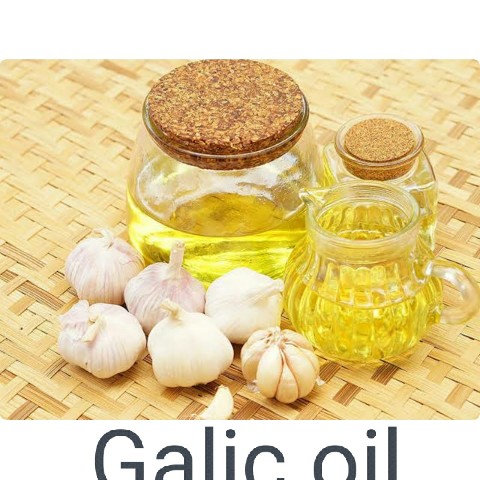
Garlic in water is the most effective way to administer garlic for chickens, but this effect is short leave. Thus, it is not advisable to preserve garlic water for long, because its effectiveness reduces with time.
In oil, its effectiveness can be preserved for a long. So you'll see some advice about drizzling garlic-infused oil on your flock's feed for your chicken health benefit as well as to reduce dustiness in their feed.
.
Nevertheless, there's evidence of an increased risk of botulisms produced by garlic soaked in any oil unless either the cloves are cooked, or the garlic-infused oil is refrigerated in the short term or frozen in the longer term.
How to make garlic oil.
- Soak two or three cloves in one litre of oil for about six hours. Use on the same day, or refrigerate for up to one week.
- After a week, the oil must be either frozen or discarded.
- If you're at all concerned about the potential dangers of botulism, leave oil alone and just feed fresh garlic.
Also read: 8 Natural growth boosters/ promoters for broiler that actually worked
What does garlic water do for chickens?
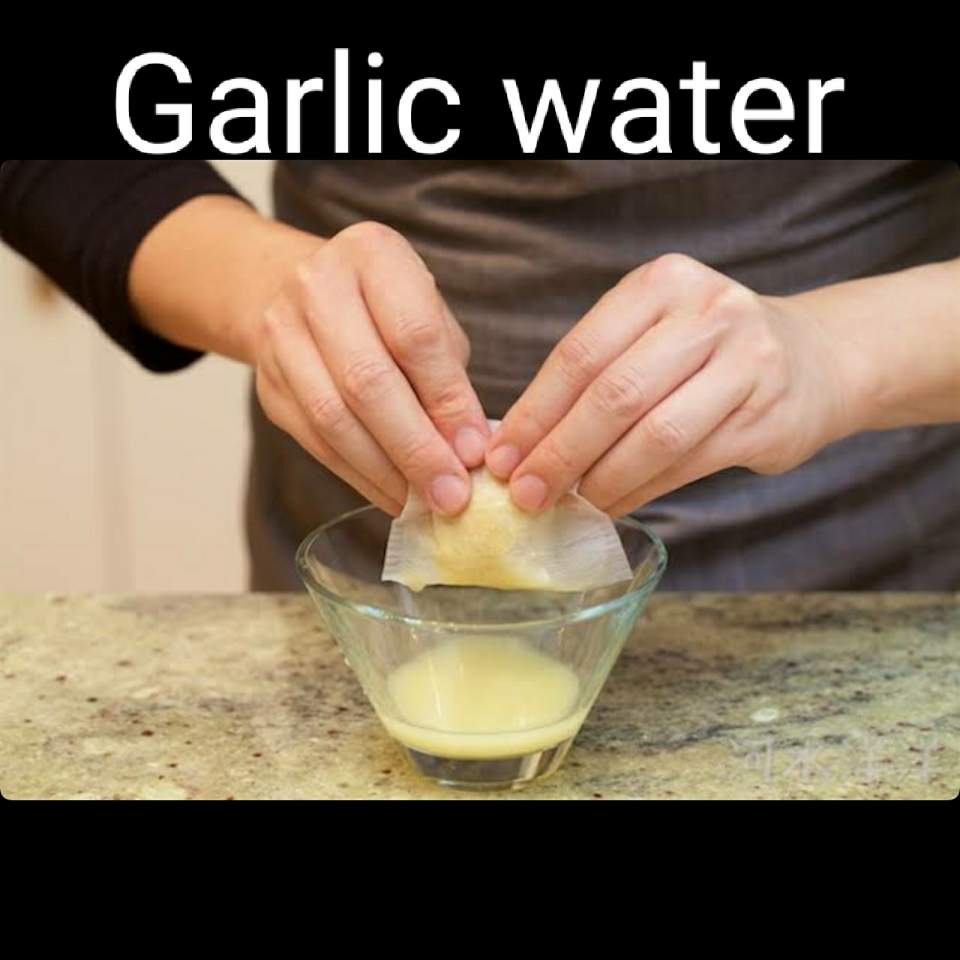
Garlic is commonly served in three forms, liquid form (water garlic), garlic powder (GP), and garlic oil (GO). However, water garlic is the easiest way to make sure your flock gets their dose of raw garlic. Simply crush 1 clove per litre (4 per gallon) into their drinking water or, if you're using it, add to their electrolyte drink
- For healthy birds, replenish the water after 48 hours, leaving out the garlic. Do this twice each week.
- For sick chicks or chickens or boost the immune system of weak chickens, continue with the garlic until symptoms have passed.
- If your flock refuses to drink, add less garlic and gradually build up the amount.
- Note, if your bird is seriously sick, you should contact a Vet (where possible) every time. Garlic cannot stand in for veterinarian treatment.
Is garlic powder as effective as fresh garlic?
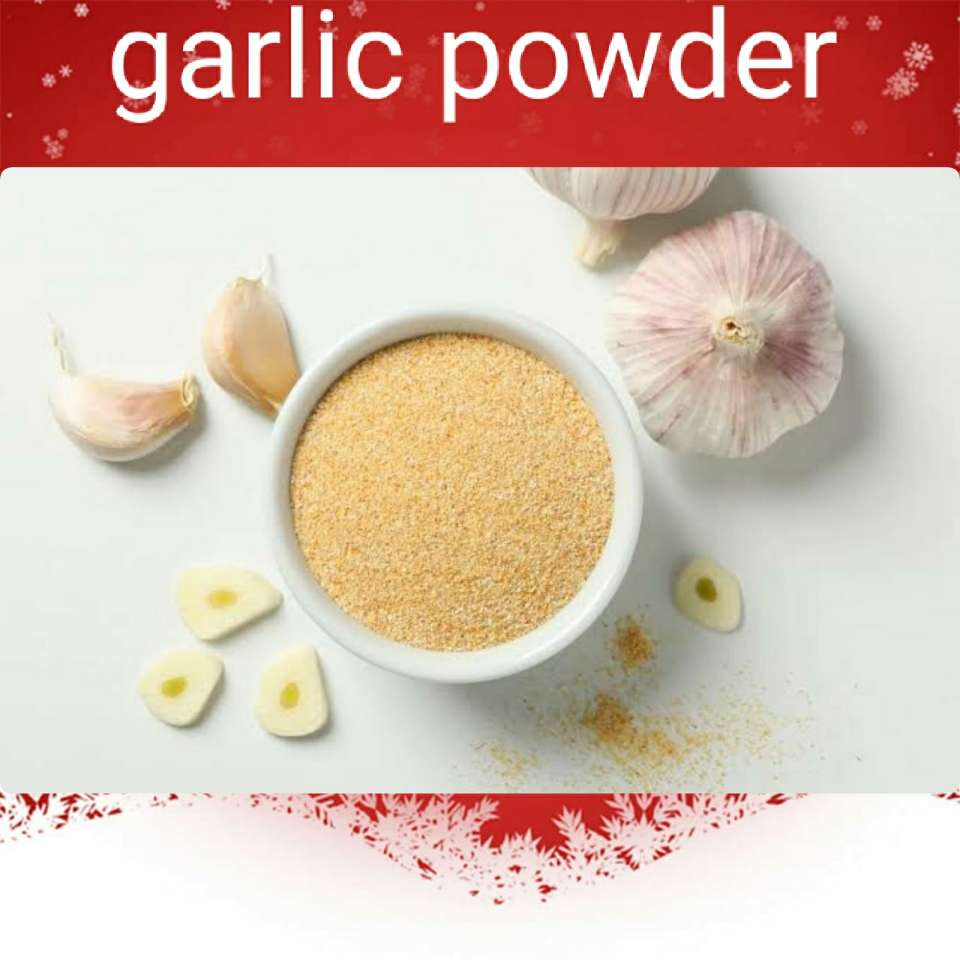
There has been an argument on the effectiveness of garlic powder (GP) compare to fresh garlic. However, I will serve fresh garlic to my chicken with every chance I get.
But you might not have all the time to prepare fresh garlic, especially if you have a large flock, therefore, there is a need for preservation which is mostly done in powder form.
Now, the question is, will GP be as effective as fresh garlic?
Studies have shown that fresh garlic is more effective than garlic powder and garlic oil in improving performance and meat quality.
Nevertheless, this does not make fresh garlic less effective. In fact, there are a lot of researches that have validated the effectiveness of garlic powder. One research on the Effect of dietary garlic powder on layer performance suggested that dietary GP improved egg weight and albumen quality with a strong garlic flavor at high dietary levels.
Similarly, other studies published in the International Journal of Poultry Science, have demonstrated that adding no more than 1% of garlic powder to a hen's diet increased both the rate at which hens laid and the quality, including weight, of their eggs.
How do you prepare garlic for poultry?
As earlier mentioned before, garlic is commonly prepared in three forms, water solution, powder form, and oil form. I have earlier discussed how to prepare it in the water and oil form.
Now, I am going to give you quick steps on how to prepare your powder garlic (GP)
- Slice your cloves into tiny little pieces and dry.
- You can dry them by baking, sun drying, or by using a dehydrator
- Store your dried garlic in a glass jar, and when you are ready to use it, simply grind it with a pestle and mortar.
For usage, Sprinkle on feed twice a week, or add to water at the rate of 1% of the feed weight.
I use around one teaspoon per kilo.
The importance of garlic and cholesterol.
There's hard evidence from scientific studies that, with an addition of just 1.0% of garlic to hens' feed:
- egg production increased
- the weight of eggs increased
- the amount of cholesterol in egg yolks decreased
- the quality of the white of the egg improved.
In other studies, garlic powder and juice reduce serum/ yolk cholesterol concentration and may increase egg shelf life and lower bacterial count of E.coli challenged eggs.
Is garlic good for broilers?
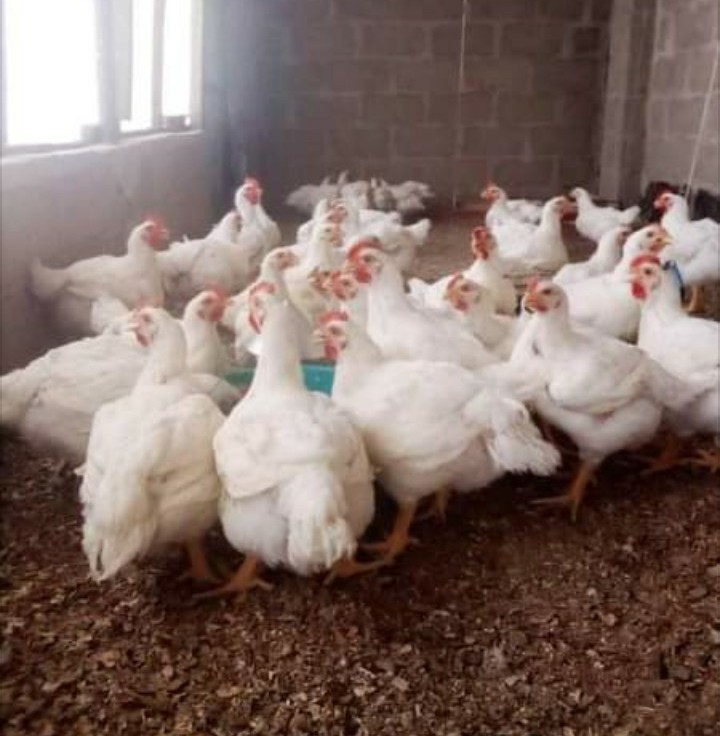
What is sauce for the goose is also sauce for the gender. Since garlic has been proven to be effective in chickens in general, of course, it should be good for broilers as well.
Some studies have reported that using garlic in broiler chicks feed resulted in a significant positive effect on broiler chicks’ growth performance and carcass yield.
The optimum inclusion rate of garlic for growth performance and carcass yield was found to be 0.3%
In conclusion, remember, moderation is the watchword. Stick to the appropriate proportion recommended. Suggestions given here are from personal experience and from well-researched scientific projects. Always seek the service of your Vet for confirmation.
Please, comment and Share!
Reference
Patel, R.M. & Garg, Deendayal & Patel, V.R. & Vahora, Safimahmad & Raval, Ajay & Choubey, Mahipal. (2017). Effect of Dietary Supplementation of Garlic ( Allium sativum ) and Fenugreek ( Trigonella foenum-graecum L.) Seed Powder on Growth Performance, Carcass Characteristics and Economics of Feeding in Broilers. Journal of Animal Research. 7. 313. 10.5958/2277-940X.2017.00045.6.
Navidshad, B., Darabighane, B., Malecky, M. (2018). Garlic: An Alternative to Antibiotics in Poultry Production, A Review. Iranian Journal of Applied Animal Science, 8(1), 9-17.
Kh.I. Sallam, M. Ishioroshi, K. Samejima, 2004,: Antioxidant and antimicrobial effects of garlic in chicken sausage,
LWT - Food Science and Technology,Volume 37, Issue 8,Pages 849-855,ISSN 0023-6438,
F.C. Velkers, K. Dieho, F.W.M. Pecher, J.C.M. Vernooij, J.H.H. van Eck, W.J.M. Landman,2011:
Efficacy of allicin from garlic against Ascaridia galli infection in chickens, Poultry Science, Volume 90, Issue 2,
Pages 364-368,ISSN 0032-5791,
Mahmoud, K. Z., Gharaibeh, S. M., Zakaria, H. A., & Qatramiz, A. M. (2010). Garlic (Allium sativum) Supplementation: Influence on Egg Production, Quality, and Yolk Cholesterol Level in Layer Hens. Asian-Australasian Journal of Animal Sciences, 23(11), 1503–1509. https://doi.org/10.5713/ajas.2010.10124
Share on Twitter Share on Facebook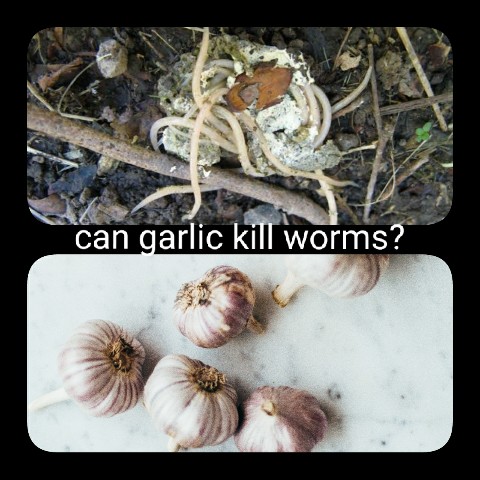
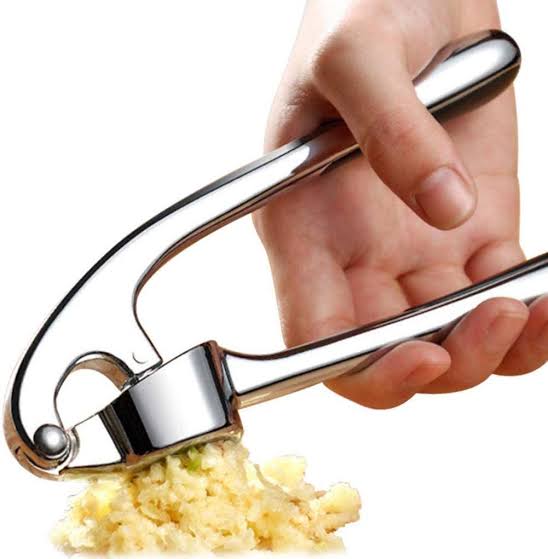
Comments
Moshio 2 years, 9 months ago
This is a wonderful explanation. May God reward you abondatly. About the size of clove, it is nowadays difficult to get a reasonable size of clove. Will it be appropriate to make it two cloves if the size is not fall to an average size? Thank you and God bless you onece more.
Link | ReplySamuel Ezenwankwo 2 years, 9 months ago
I am glad you find it helpful.
Link | ReplyYes use can add two clove if they are below average. just use your discretion.
Moshio 2 years, 9 months ago
Another question please, will the water be given to then through out the day or be giving to then as if you ate giving then vaccine
Link | ReplySamuel Ezenwankwo 2 years, 9 months ago
Through out the day, as long as you have enough quantity for the amount of water.
Link | ReplyIdowu Ayeni 2 years, 7 months ago
Nice write up,well articulated and found to be useful.
Link | ReplyNdifreke Clement 1 year, 5 months ago
Garlic and ginger is very good for broilers more than any drugs for broilers...
Link | ReplySamuel Ezenwankwo 1 year, 4 months ago
You can say that again.
Link | ReplyComment awaiting approval 9 months, 2 weeks ago
New Comment